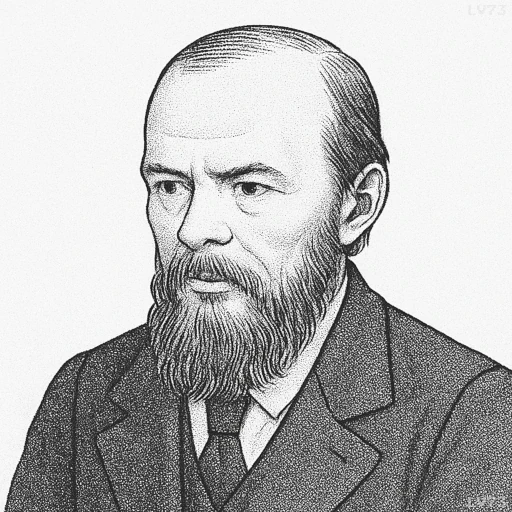“Happiness does not lie in happiness, but in the achievement of it.”

- November 11, 1821 – February 9, 1881
- Born in the Russian Empire
- Novelist, philosopher
table of contents
Quote
“Happiness does not lie in happiness, but in the achievement of it.”
Explanation
Dostoevsky’s quote offers a philosophical reflection on the nature of happiness, suggesting that true contentment does not reside in the state of being happy itself, but in the pursuit or achievement of happiness. In this view, happiness is not a static or easily attainable goal but a dynamic, ongoing process that is found in the effort and struggle towards it. Dostoevsky often explored themes of suffering, purpose, and growth in his works, arguing that the meaning or value of life is derived not from ease or the mere experience of joy, but from the challenges and struggles that shape a person’s character. In this context, happiness is not something one simply receives or achieves in an instant, but rather a journey that requires effort, sacrifice, and commitment.
This idea resonates with Dostoevsky’s broader belief in the transformative power of suffering and the idea that through struggle, a person is able to cultivate a deeper sense of meaning and purpose. Characters in Dostoevsky’s novels, such as Raskolnikov in Crime and Punishment or Ivan Karamazov in The Brothers Karamazov, wrestle with moral dilemmas, existential doubt, and the consequences of their actions, yet their journeys toward understanding and redemption offer a form of happiness that is far richer and more profound than mere pleasure or comfort. It is in the process of confronting their inner turmoil, their mistakes, and their search for meaning that they experience a deeper form of happiness—one tied to growth, self-discovery, and the acquisition of wisdom.
In contemporary terms, this quote challenges the modern obsession with instant gratification and happiness as a destination. In an age of consumerism, social media, and self-help culture, there is often the assumption that happiness is something that can be obtained through the right product, experience, or achievement. Yet Dostoevsky’s idea encourages us to rethink this notion and recognize that happiness is not simply about attaining a perfect moment or ideal circumstances, but about the effort we put into our pursuits—whether in our personal relationships, our professional lives, or our spiritual journeys. The struggle to live a meaningful life, to overcome obstacles, and to grow as individuals is what gives happiness its depth and value. In this sense, happiness is found not in the end result, but in the act of seeking, creating, and earning it through the challenges we face along the way.
Would you like to share your impressions or related stories about this quote in the comments section?

